


Our PBS practitioners team up with you, your family, and your support network to really get to the heart of understanding the underlying factors behind behaviours of concern. We recognise that many behaviours of concern are expressions of unmet needs or communication difficulties.
We focus on your strengths, interests and what brings you joy, using a strength-based approach to boost your social and emotional wellbeing. Through careful observation and analysis, we identify triggers and the root causes of behaviours of concern, rather than just addressing the behaviours themselves.
Together, we create a supportive environment that fosters skill development, encourages independence and promotes community participation.
We help people with disabilities who present with challenging behaviours like property destruction, physical aggression, verbal aggression, or self-injury. Our tailored positive behaviour support plans aim to help better manage these behaviours, improving overall well-being and supporting a happier, more fulfilling life.
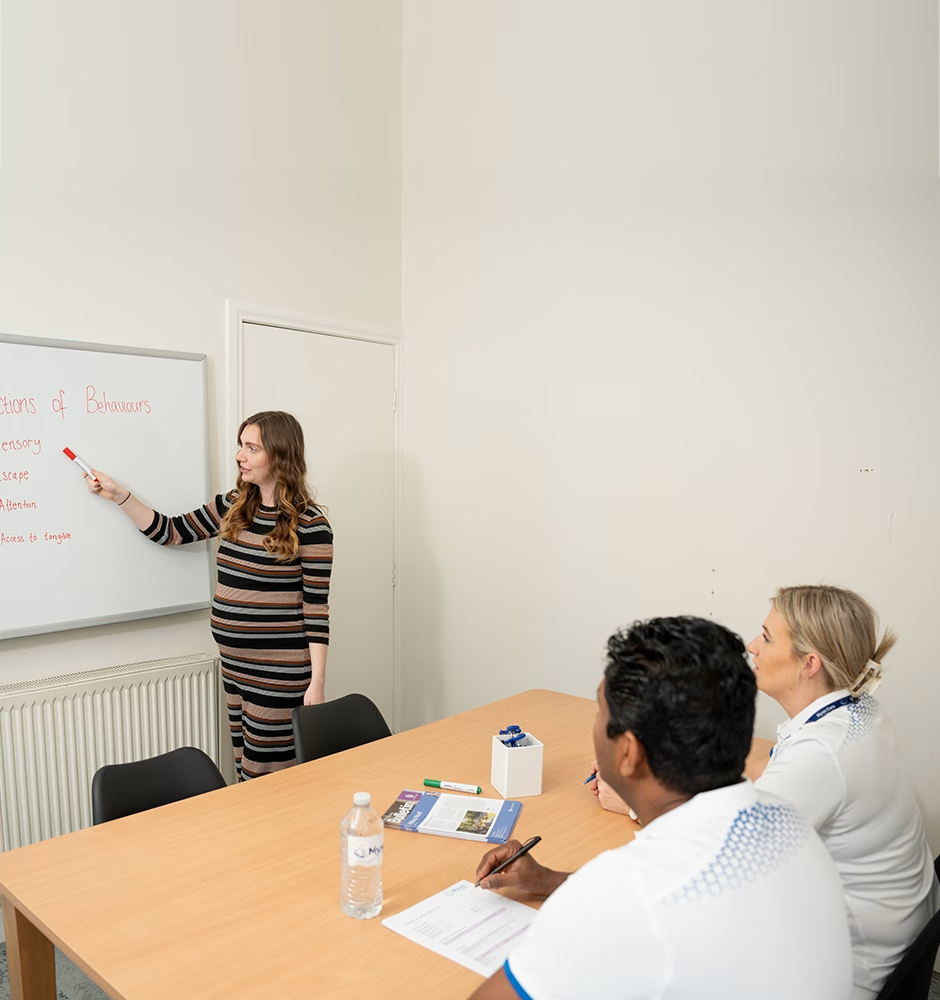
Partner with us to deliver personalised, impactful positive behaviour support.
Every individual is unique, and so are their support needs. Our assessments and plans are customised to suit each person’s specific circumstances and goals.
Our PBS team are experts in their field who have supported individuals with a broad range of behaviours of concern – including those with forensic backgrounds, severe mental health issues, or complex needs.
Our PBS services are grounded in the latest research and best practices in the field of behaviour support. We utilise proven strategies and interventions to promote positive behaviour change and improve the quality of life for NDIS participants.
We work closely with NDIS Support Coordinators, families, carers, teachers, allied health professionals and other stakeholders to ensure a coordinated approach – integrating everyone involved in the planning and implementation process.
In addition to PBS, Myxa offers a comprehensive range of support services to meet the diverse needs of NDIS participants. Our holistic approach is deeply rooted in positivity and understanding delivering customised services, ensuring each individual’s choice and control.
Our registered behaviour support practitioners are ready to assess your needs and develop a personalised interim and comprehensive behaviour support plan, which typically includes:
Within four weeks of starting service with us, we will work with you to develop an interim behaviour support plan which works to include:
“Instead of seeing someone as ‘challenging’, we focus on understanding their needs and the situations that might be causing difficulty. We work together with individuals and their families to develop solutions that empower them to make choices, live more independently, and experience a fulfilling life”.

We have got a team of registered Behaviour Support Practitioners, who are all set to assess your needs and develop a personalised behaviour support plan which will detail the below:

This involves understanding the purpose or the function of the behaviours of concern you may be presenting with. We look to assess and analyse the following to help develop a more personalised interim and comprehensive behaviour support plan.
Based on the assessment, we’ll create a personalised behaviour plan to prevent, respond to and manage challenging behaviours focusing on:
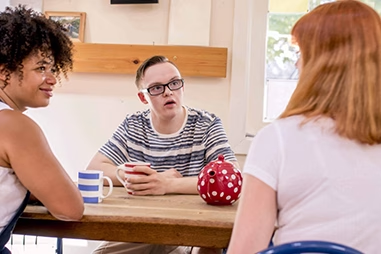
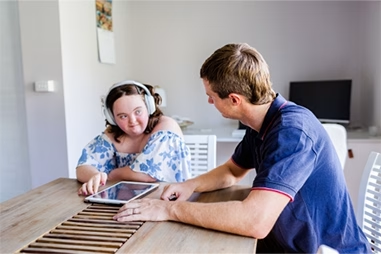
Our PBS team will work with participants and their support team on identifying and reducing the use of restrictive practices over the course of the PBS plan. Restrictive practices are interventions that limit a person’s freedom of movement or rights in order to protect them or others from harm. They are typically used in situations where a person’s challenging behaviour poses a significant safety risk.
We’ll work with the participant and their support team to implement the plan. Training and support are provided throughout the process. The PBS plan can be adjusted as needed based on progress and feedback.


We’ll create a report for the NDIS Commission outlining the plan and its effectiveness, ensuring you receive the right support to manage behavioural risks.

PBS aims to address the root causes of behaviour, leading to a decrease in their frequency and intensity.
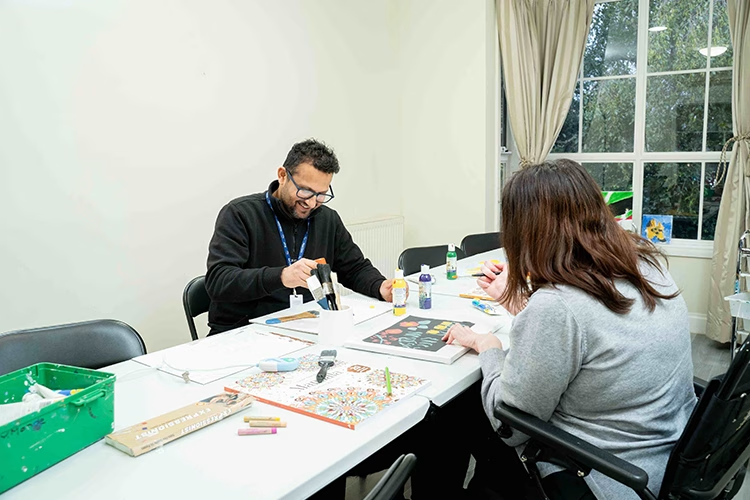
PBS promotes greater independence, empowerment, and well-being for individuals and their families.
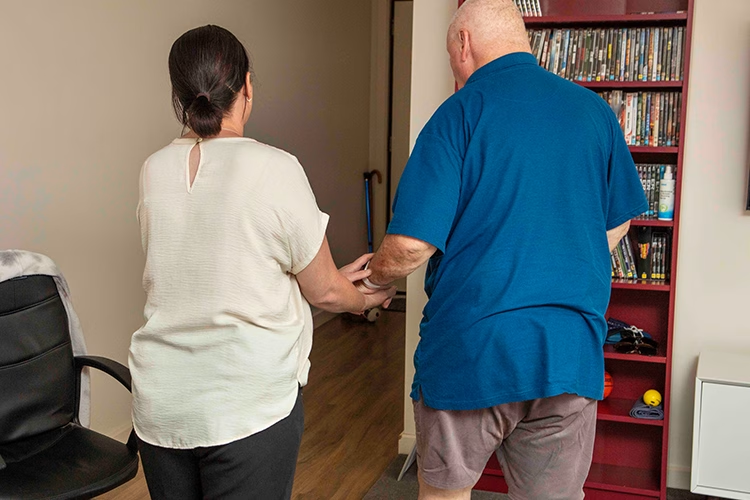
PBS supports positive interactions and communication between individuals and their support network.
PBS is a person-centered approach that focuses on understanding the reasons behind challenging behaviours and finding positive strategies to address them. It aims to improve quality of life for both the individual and their support network.
Individuals of all ages with a wide range of disabilities and challenging behaviours, including intellectual disabilities, autism spectrum disorder, mental health conditions, and neurological conditions. Families and carers who support individuals with challenging behaviours.
PBS involves gathering information about the individual, their needs, and the triggers for their challenging behaviours. Based on this information, our team develops a personalised PBS plan with positive strategies to address the behaviours. These strategies may include things like communication techniques, environmental adjustments, skill development, and positive reinforcement. The plan is implemented and monitored over time, with adjustments made as needed.
Our current waitlist is approximately two to three weeks, unless the participants’ need is deemed as urgent, we will then work with the participant and their family/carers quickly.
Yes, we offer both face to face and online appointments to be able to tailor the support to the individual participant.
We have Behavioural Support Practitioners that can service face to face appointments in Bendigo, Melbourne and Adelaide. We also offer telehealth appointments that can service anyone anywhere in Australia.
Yes of course, we strive to offer personalised support and care and want you to feel comfortable and supported.